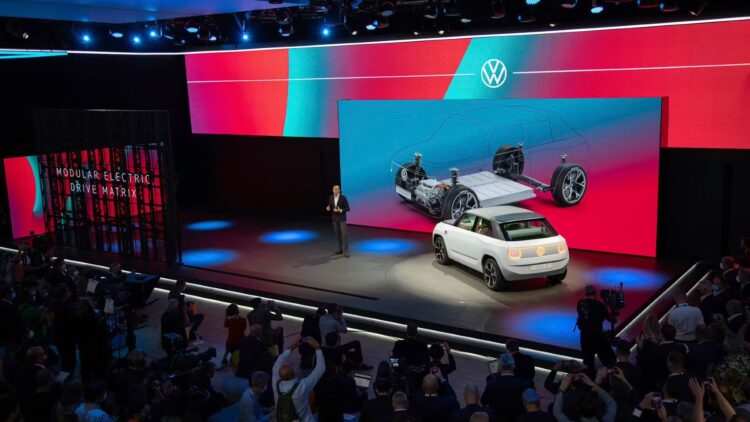The automobile industry is set to shift as a new 100% American hydrogen car is in the market. This revolutionary concept car is expected to revolutionize transport in the coming years due to this technology and environmental impacts. Ford’s early work in hydrogen fuel cell research is the big idea that will make this vision possible, hence defining a new era in the automotive industry by coming up with the e-Transit van.
Ford’s innovative hydrogen fuel cell technology: A game-changer
E-Transit is where Ford is at the forefront of developing the hydrogen fuel cells. This program investigates the feasibility of using hydrogen as an energy source for commercial vehicles. Ford’s E-Transit is a perfect solution for high mileage and heavy-use applications because it can have zero emissions, increased range, and faster refueling with hydrogen fuel cells. It is within the context of a broader strategy for the emergence of alternative fuels and the creation of the appropriate fuelling networks.
The E-Transit project is backed by a group of automotive technology giants and fleet operators: BP, Cambustion, Viritech, and Cygnet Texkimp. These partners are essential in proving the hydrogen fuel cell system is safe, efficient, and ready for commercialization. The partnership is expected to generate meaningful information on the life cycle cost and operational advantages of hydrogen vehicles.
Hydrogen technology has been on Ford’s radar for quite some time now. Fuel cell technology has been under research by the company since the early 1990s, and several models have been developed. The current E-Transit project follows this line with a low volume test fleet planned to operate for over three years. This pilot program will help gather information to fine-tune the vehicle and the general hydrogen economy.
Enhancing safety and efficiency: Ford’s new hydrogen innovations
Safety is one of the most significant risks associated with hydrogen-powered vehicles, and Ford has already made significant progress in this field. The company has recently applied for a patent on a new invention that helps increase the safety and effectiveness of compressed gas tanks. This technology is about having extra tanks beside the chassis but within the body to hold more fuel without compromising safety.
The patented design also has a curved bracket between the frame rails to hold the conventional compressed gas tanks. Furthermore, a hinged bracket on the outboard side of each frame rail enables the tanks to be swiveled away from a collision event. This new concept helps reduce the probability of tank explosions and improve car safety.
It is not only the specification of the tanks that have been given attention in the safety measures of Ford. The company also fabricates the tanks with high-strength composite material like carbon fiber. In addition, the ADAS and the electronic controllers can safely remove the tanks during an impact, thereby providing optimum protection for the tank and the occupants.
The future of hydrogen-powered vehicles: Ford’s strategic vision
The hydrogen fuel cell E-Transit is one of the essential initiatives under Ford’s sustainable development plan. The project supports Ford’s Road to Better plan, an initiative to make Ford Europe’s operations carbon-neutral by 2035. With hydrogen-powered cars, Ford is moving in the right direction of combating dangerous emissions and championing clean power.
The E-Transit project also assists Ford’s strategy of building a low-volume assembly upfit for hydrogen automobiles. It is possible to achieve the goals of this initiative and expand it to support the development of the hydrogen economy. The trial vehicles will help determine diversified fuels’ present and future requirements, especially in areas like the Thames Estuary, where the company’s Dagenham plant is sited.
In addition, Ford’s location within the Thames Freeport zone with good transport links provides an additional advantage to the project. Policies concerning the environment include cutting emissions from production plants and researching technologies for environmentally sustainable production.
Hydrogen fuel cell technology will transform the automotive industry and is spearheaded by Ford. The first 100% American hydrogen car will have zero emission, more extended range, improved safety, and another step toward green mobility. With Ford constantly trying to create and design cars that run on hydrogen, the future for clean energy transportation is brighter than ever.

